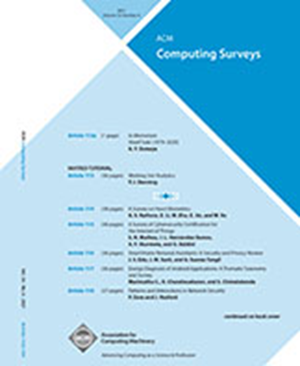无监督深度学习在汽车卡车异常检测中的应用研究
IF 28
1区 计算机科学
Q1 COMPUTER SCIENCE, THEORY & METHODS
引用次数: 0
摘要
随着智能汽车过程数据收集的进展,在数据驱动的预测模型中使用这些数据将变得越来越重要。传感器数据异常检测对于保证车辆的安全性、可靠性、高效性和自动识别异常行为起着至关重要的作用。卡车的不同操作点和设计变体使得用统计方法或专家知识进行人工分析是不可能的。困难之处在于,在大多数情况下,数据没有标签,而且主要只有带有零星错误情况的正常行为数据可用。聚类、无监督、单类分类和异常检测方法看起来很有前途。本调查报告探讨了无监督深度学习技术在卡车传感器数据收集中的应用。我们回顾和分析各种方法,讨论它们的优势和局限性,并确定开放的研究挑战。本文章由计算机程序翻译,如有差异,请以英文原文为准。
Unsupervised Deep Learning for Anomaly Detection in Automotive Trucks: A Survey
As the collection of process data in intelligent vehicles progresses, using this data in data-driven prognosis models will become increasingly relevant. Anomaly detection in sensor data plays a critical role in ensuring vehicle safety, reliability, efficiency, and to automatically identifying abnormal behavior. The different operating points and design variants of the trucks make a manual analysis with statistical methods or expert knowledge impossible. Difficult is that, in most cases, there are no labels for the data, and primarily, only normal behavior data with sporadic error cases are available. Clustering, unsupervised, one-class classification, and anomaly detection approaches appear promising. This survey paper explores the application of unsupervised deep learning techniques in sensor data collected from trucks. We review and analyze various approaches, discuss their strengths and limitations, and identify open research challenges.
求助全文
通过发布文献求助,成功后即可免费获取论文全文。
去求助
来源期刊

ACM Computing Surveys
工程技术-计算机:理论方法
CiteScore
33.20
自引率
0.60%
发文量
372
审稿时长
12 months
期刊介绍:
ACM Computing Surveys is an academic journal that focuses on publishing surveys and tutorials on various areas of computing research and practice. The journal aims to provide comprehensive and easily understandable articles that guide readers through the literature and help them understand topics outside their specialties. In terms of impact, CSUR has a high reputation with a 2022 Impact Factor of 16.6. It is ranked 3rd out of 111 journals in the field of Computer Science Theory & Methods.
ACM Computing Surveys is indexed and abstracted in various services, including AI2 Semantic Scholar, Baidu, Clarivate/ISI: JCR, CNKI, DeepDyve, DTU, EBSCO: EDS/HOST, and IET Inspec, among others.
 求助内容:
求助内容: 应助结果提醒方式:
应助结果提醒方式:


